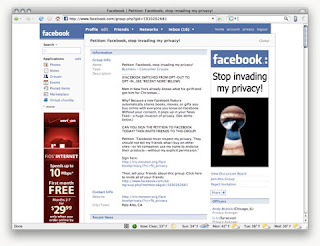Social media has become an integral part of our everyday lives and corporate communications in the workplace however, like other media, it faces many challenges. Ethical issues have been raised including the following headings:
1. Privacy and Reputation
2. Truth and Honesty
3. Security
4. Safety
Having existed for nearly 50 years, the Advertising Standards Authority (ASA) http://www.asa.org.uk/ allows for any member of the public to voice a complaint about a specific advertisement which they find is inappropriate or offensive to them.
 There has been a recent development in the regulation of advertisements by the ASA this year as they are now going to regulate online content: New online remit . Before March 1st 2011, content online was free of any regulations and companies were allowed to advertise their brand however they wanted without having to think, for example; of ethical issues. The new Advertising Associations Online marketing regulation will ensure that consumers are not exploited online by false advertising claims. This will help ensure that the public are not taken advantage of and made to believe false advertising claims online and will encourage organisations to be socially responsible so consumers can build trust with their brand.
There has been a recent development in the regulation of advertisements by the ASA this year as they are now going to regulate online content: New online remit . Before March 1st 2011, content online was free of any regulations and companies were allowed to advertise their brand however they wanted without having to think, for example; of ethical issues. The new Advertising Associations Online marketing regulation will ensure that consumers are not exploited online by false advertising claims. This will help ensure that the public are not taken advantage of and made to believe false advertising claims online and will encourage organisations to be socially responsible so consumers can build trust with their brand.There are daily complaints to the ASA; in 2010 they received over 26’000 complaints. I have included two examples below:
- Tesco’s anti-Asda advertisements being misleading – ASA realised that 13 fresh foods were not included in Asda’s price Guarantee. Tesco just said that they didn’t realize this and it was a mistake. Lies? This shows that false advertising claims will soon be found out especially when a company decide to bring down another in it’s advertsing.
· Lush creating a campaign that was against fox hunting and wanted to stop it saying it was still happening and giving out leaflets in-store. Postcards were given out to the public encouraging them to send it to their local police stations. People complained that Lush were being offensive to hunters. There was also a claim found that "... a whopping 75% of the population want to see hunting with hounds remain a criminal activity" which shoots Lush down a level. There was also the concern that this campaign would cause violence amongst protesters and the public.
The new online remit adopted by the ASA suggests the extent to which the internet is being used today to develop communications between brands and potential consumers online. There is a huge opportunity for brands to develop integrated online communications experimenting with their brands through various media forms and making it interactive with its users. Now brands have to be careful to portray the right message to the right audience at the right time or else the ASA will be on their case!










